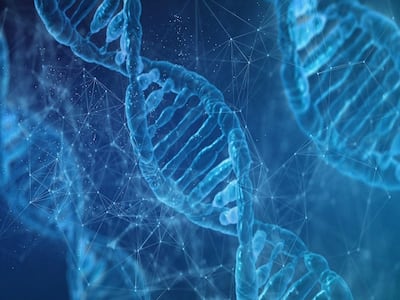
Understanding the secrets of inherited health conditions not only benefits individuals and families but also advances the frontiers of medical science.
Genes play a huge role in various health conditions hence it is essential to know about certain genetic diseases that result from alterations or mutations in an individual’s DNA sequence. Genetic disorders are inherited from one’s parents, unlike infectious diseases, which can be spread from person to person. Since these disorders are frequently complex, scientists have been fascinated by them for a long time since understanding them is crucial for creating effective therapies and preventative measures. We shall explore the realm of genetic diseases in this article, looking at their causes, types, and the significance of genetic testing. The building blocks of life are genes. They convey the instructions necessary for our bodies to develop, work, and be maintained. Each person has a unique set of genes since they each receive half of their genetic material from their biological mother and half from their biological father. Despite the fact that the majority of genes are responsible for normal growth and development, changes or mutations in these genes.
Types Of Genetic Diseases
There are different types of Genetic Diseases:
Single-Gene Disorders: Conditions including cystic fibrosis, sickle cell anemia, and Huntington’s disease are caused by mutations in a single gene.
Chromosomal disorders: These are ailments that develop when a person’s chromosomes are defective. Chromosome problems include Down syndrome, Turner syndrome, and Klinefelter syndrome.
Multifactorial disorders: These conditions are influenced by both environmental and genetic factors. This group includes conditions like heart disease, diabetes, and a few types of cancer.
Mitochondrial disorders: Mitochondria are cellular organelles that provide energy. Numerous diseases, including mitochondrial myopathy, can result from mutations in the mitochondrial DNA.
Autism, schizophrenia, and Alzheimer’s disease are examples of complex disorders that have a hereditary basis but are also influenced by a variety of environmental and genetic factors.
READ RELATED: Misconceptions Vs Reality Of Therapy: Don’t Believe Everything You See In Movies!
Importance Of Genetic Testing
Genetic testing has revolutionized our understanding of genetic diseases and has significant implications for healthcare:
Early detection: Genetic testing can reveal whether dangerous mutations are present, enabling early intervention and treatment. For instance, newborn screening can quickly identify diseases like phenylketonuria (PKU).
Risk assessment: Testing can determine a person’s likelihood of later in life getting a certain hereditary condition, enabling proactive steps for early detection or prevention.
Genetic testing can be used by couples to assess their risk of passing on inherited diseases to their offspring as part of informed family planning. Family planning choices can be influenced by this knowledge.
Personalized Medicine: In the domains of oncology and pharmacogenomics, where medications are customized to a person’s genetic profile, genetic information can help guide personalized treatment approaches.
Total Wellness is now just a click away.
Follow us on
Don’t Miss Out on the Latest Updates.
Subscribe to Our Newsletter Today!
window.addEventListener(‘load’, (event) => {
$(‘#commentbtn’).on(“click”,function(){
(function(d, s, id) { var js, fjs = d.getElementsByTagName(s)[0]; if (d.getElementById(id)) return; js = d.createElement(s); js.id = id; js.src = “//connect.facebook.net/en_US/sdk.js#xfbml=1&version=v2.3”; fjs.parentNode.insertBefore(js, fjs);}(document, ‘script’, ‘facebook-jssdk’));
$(“.cmntbox”).toggle();
});
});









